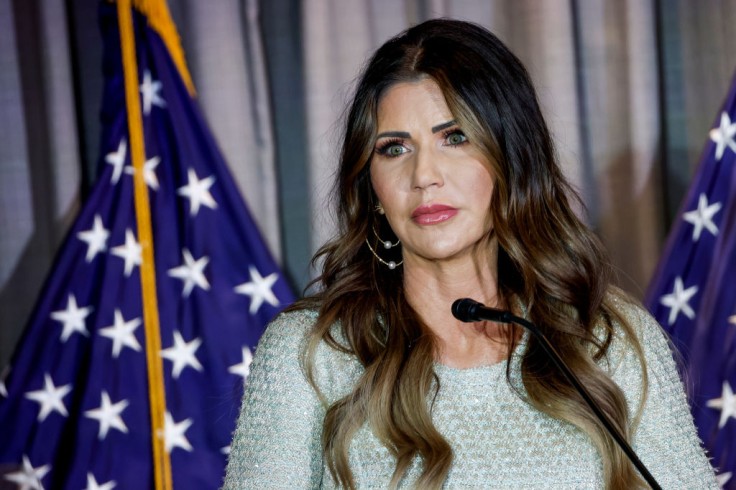
South Dakota Governor Kristi Noem has recently sparked controversy with her stance on drag shows, preferred pronouns, and free speech in the state's universities.
In a letter addressed to the South Dakota Board of Regents, Governor Noem expressed her concerns about what she perceives as the negative influence of liberal ideologies on higher education.
Challenging the Board of Regents to improve the quality of higher education in the state, Governor Noem criticized the prevalence of "liberal ideologies" on college campuses, arguing that they have poisoned the learning environment.
She contended that students are being sheltered in safe spaces instead of being exposed to the realities of disagreement, discomfort, and dissent that they will encounter in the real world.
South Dakota Aims To Bolster Free Speech
According to NBC News, one of Governor Noem's key proposals is to protect and enhance free speech rights on campus. While advocating for free expression, her stance on drag shows has drawn attention and raised questions about the boundaries of free speech.
Governor Noem has called for a ban on drag shows in universities, citing concerns over their content and appropriateness for a diverse audience. However, critics argue that drag shows fall under the umbrella of free expression, protected by the First Amendment, as long as they do not cross into obscenity.
Furthermore, Governor Noem's letter also touched on the topic of preferred pronouns. She urged the removal of references to preferred pronouns in school materials. This stance has triggered discussions about inclusivity and transgender rights.
Advocates argue that using preferred pronouns is a crucial step in creating an inclusive and respectful environment for all students, including transgender individuals.
The message of this letter does not come as a shock to the people of South Dakota, as the state has already passed similar bills specifically intended for the transgender community.
Earlier this year, as reported by CNN, Governor Kristi Noem approved legislation known as HB 1080, which prohibits transgender minors from accessing both surgical and non-surgical gender-affirming treatments in the state.
The bill specifically bans the prescription and administration of sex hormones, puberty-blocking medication, and any gender transition-related surgeries for individuals under the age of 18. Healthcare providers found in violation of the new law, effective July 1, could face civil lawsuits and the potential revocation of their professional licenses.
Read Also: Target Faces Scrutiny Over Removal of LGBTQIA+ Merchandise in Response To Employee Safety Threats
Governor's Call for Improved Graduation Rates and Affordability
According to the Yankton Daily, the Board of Regents in South Dakota oversees various educational institutions, including the University of South Dakota, Dakota State University, South Dakota Mines, Black Hills State University, Northern State University, South Dakota State University, South Dakota Services for the Deaf, USD-Sioux Falls, and the School for the Blind and Visually Impaired.
Governor Noem emphasized the need to improve graduation rates at South Dakota's public universities. Citing data from the U.S. Department of Education College Scoreboard, she highlighted that approximately 47% of students enrolled in state public universities are graduating, which is below the national average. The governor challenged the Board of Regents to raise the graduation rate to 65% by 2028.
She also called for efforts to make higher education more affordable, although specific solutions were not mentioned in the letter.
In response to Governor Noem's letter, the South Dakota Board of Regents emphasized that many of the suggestions mentioned have already been addressed or are being actively pursued. They highlighted their ongoing work through internal strategic plans and the Senate Bill 55 Legislative Task Force, which aims to support the growth of South Dakota's workforce through public universities.
The Board of Regents also referred to the 2020 Legislature-mandated task force. This task force has been instrumental in identifying areas for improvement and developing strategies to enhance the state's higher education system.
